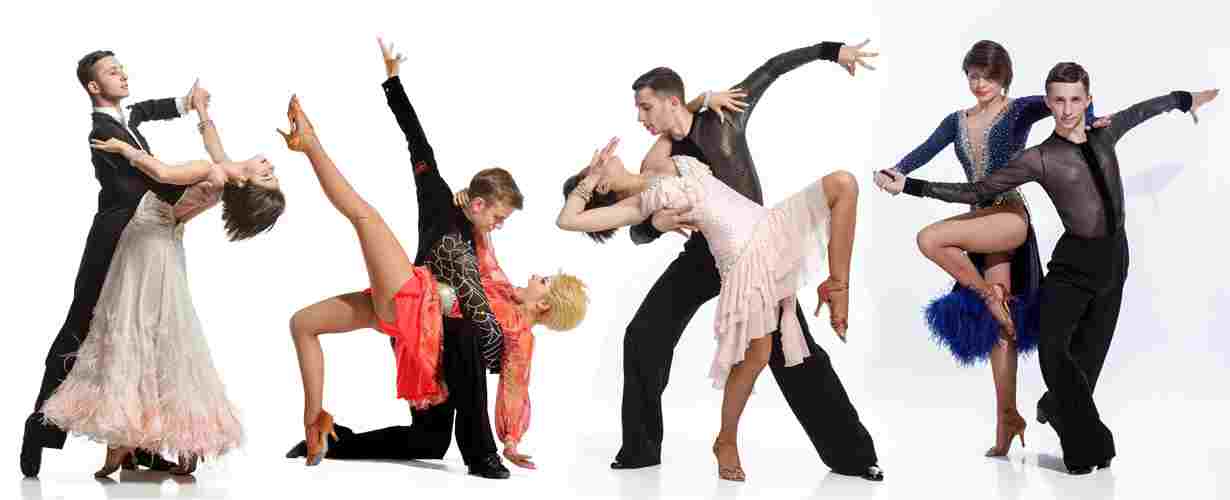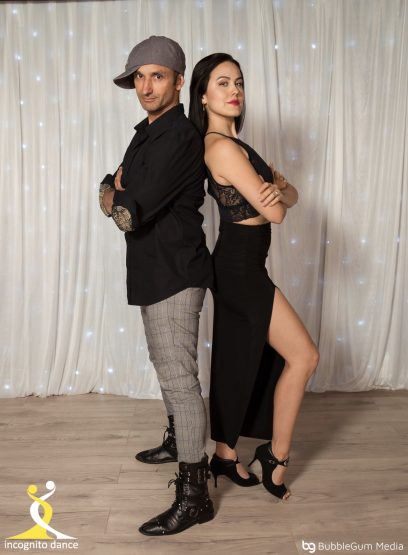Dance Fridays - The Facts
Wiki Article
The Facts About Dance Fridays Uncovered
Table of ContentsFacts About Dance Fridays UncoveredDance Fridays Fundamentals ExplainedDance Fridays Can Be Fun For EveryoneExcitement About Dance FridaysDance Fridays Can Be Fun For EveryoneA Biased View of Dance FridaysWhat Does Dance Fridays Do?
The major difference that differentiates the Miami-style from other North American styles is the "Atras" or "Diagonal", back damaging actions done backwards diagonally rather of moving forwards and backwards as seen in the New york city design. Dancers do not move their body weight substantially as seen in other styles. Instead, dancers maintain their upper body still, poised and unwinded, concentrating on foot motion.A significant distinction in between Cali Style and Miami-style is the latter is solely danced on the downbeat (On1) and has elements of lusters and show-style included to it, following arsenals of North American styles. Miami-style has lots of followers, especially Cuban-Americans and various other Latinos based in South Florida.
Numerous of the steps involve quickly switching companions. "Rueda de Miami" originated in the 1980s from Miami, is an official style with lots of guidelines based on a mix, and is a hybridization of Rueda de Cuba & North American dance designs, with some regimens reflecting American culture (e.
Coca-Cola, Dedo, Adios) which is not found in located traditional Cuban-style Typical (salsa dancing club san francisco). Cali is also understood as the "Capital de la Salsa" (Salsa's Funding); due to salsa songs being the major category in events, bars and celebrations in the 21st century.

An Unbiased View of Dance Fridays
They include different acrobats such as partnered turns to amuse with these jaw dropping stunts. Their footwork is intricate and specific, helping a number of Colombian Style professional dancers win significant globe champions. Cali hosts lots of annual salsa occasions such as the Globe Salsa Cali Festival and the Encuentro de Melomanos y Coleccionistas.For instance, scientists in the lives sciences researched the math of salsa dancing actions. In the social sciences, researchers have examined salsa dancing to comprehend, for instance exactly how the Latino identity is connected to salsa dance. The research study of salsa dancing has actually been examined as a allegory to recognize emotional and cultural economic climates.
Centro Journal. Gotten 2023-05-26. Salsa Vida.
Salsa Vida. 26 June 2023. Recovered 5 October 2023.

Examine This Report about Dance Fridays
" Most Popular Kind Of Salsa Dance - The Modern Professional dancer". 2020-04-15. Fetched 2022-09-27. " Salsa or Bachata, Which is Easier to Learn?". Movers and Shakers Salsa & Bachata Dancing Academy. Retrieved November 9, 2023. Mc, Keys, Juliet (2015 ). Spinning Mambo Into Salsa. Oxford College Press. ISBN 9780199324644. Amanda Rosa. " Longtime dancing trainer talks salsa, both 'Cuban style' and 'Miami style'".Obtained 2019-06-26. Waxer, Lise Aerinne (2002 ). The city of musical memory: salsa, document grooves, and pop culture in Cali, Colombia. Music/culture. Middletown, Conn: Wesleyan College Press. ISBN 978-0-8195-6441-2. " Colombian Design Salsa". Salsa Vida SF. Recovered 27 July 2020. von Renesse, Christine; Ecke, Volker (2011-03-01). " Mathematics and Salsa dancing". Journal of Mathematics and the Arts.
doi:10. 1080/17513472. 2010.491781. ISSN 1751-3472. S2CID 120939987. Dormani, Carmela Muzio (2020-07-07). " So You Believe You Can Salsa: Executing Latinness on Truth Dancing Tv". The Journal of Pop Culture. 53 (3 ): 720738. doi:10. 1111/jpcu. 12929. ISSN 0022-3840. S2CID 225829802. Hewer, Paul; Hamilton, Kathy (2010-03-29). " On emotions and salsa: some thoughts on dancing to reconsider customers".
The Only Guide for Dance Fridays

:10.
Something failed. Wait a minute and try once more Try once again.
The Greatest Guide To Dance Fridays
We're chatting regarding the dance, not the tasty South American condiment. The beginnings of words "Salsa" as the name sites of a dancing has provided discussion for decades. The most prominent (and perhaps approved) theory is that Cuban and Puerto Rican musicians in New york city created the phrase in New York in the 1970's, to define the spicy combination of music they were creating out of the rhythms and concepts of Cuban child montuno, guaracha, chachacha, mambo and bolero.Report this wiki page